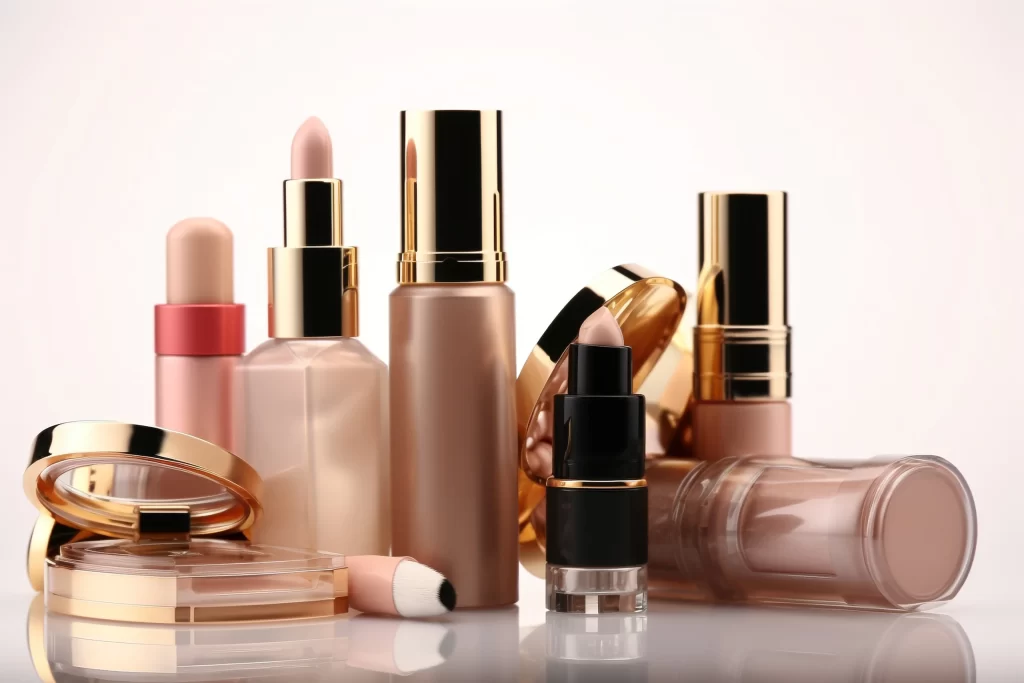Polymerization chain reaction (PCR) is an important molecular biology technique that plays a crucial role in the field of cosmetics. It plays an important role in ingredient detection, quality control, and environmental monitoring, providing strong support for the sustainable development and quality improvement of the cosmetics industry. This article will delve into the role of PCR in the cosmetics industry, its global and Chinese applications, and introduce the usage regulations and standards in Europe, as well as the qualifications required for using PCR in the cosmetics industry.
1、 The role of PCR in the cosmetics industry
Component detection and identification: PCR technology can quickly and accurately detect the components in cosmetics, including active ingredients, preservatives, pigments, etc. Through PCR technology, cosmetic companies can ensure that the ingredients in their products comply with regulatory requirements, ensuring the safety and effectiveness of their products.
Quality control: PCR technology can be used for quality control of cosmetic products. Enterprises can use PCR technology to test the purity, stability, and consistency of products to ensure stable product quality and compliance with standards.
Environmental monitoring: PCR technology can also be applied to environmental monitoring in the production process of cosmetics. Enterprises can use PCR technology to detect wastewater, exhaust gas, etc. generated during the production process, thereby achieving environmentally friendly production and in line with the concept of sustainable development.
2、 The application of PCR in the cosmetics industry globally and in China
According to the latest data and research reports, the application proportion of PCR technology in the global cosmetics industry is constantly increasing. More and more cosmetic companies are realizing the importance of PCR technology and are beginning to use PCR technology for product testing and quality control. Currently, about 30% of cosmetics companies worldwide use PCR technology for ingredient testing and quality control.
In China, with the continuous expansion of the cosmetics market and increasingly strict industry regulation, the application of PCR technology in the cosmetics field is also growing rapidly. About 50% of cosmetics companies in China have introduced PCR technology for product quality testing and ingredient identification. The application of PCR technology in the Chinese cosmetics industry is expected to continue to expand, bringing new opportunities for the industry’s development.
3、 European usage regulations and standards
Europe is one of the important markets in the global cosmetics industry, with strict supervision and standards for the quality and safety of cosmetics. In Europe, the application of PCR technology is also regulated by relevant regulations.
According to European cosmetics regulatory regulations, cosmetics companies are required to comply with the following regulations when using PCR technology for ingredient testing and quality control:
Accuracy and reliability of detection methods: Cosmetic companies need to ensure the accuracy and reliability of detection methods when using PCR technology to ensure the accuracy and reliability of detection results.
Compliance certification: Enterprises need to obtain relevant compliance certification to prove that the PCR technology they use meets the requirements of European cosmetics regulations.
Clinical validation: For certain specific cosmetic products, clinical validation is required to demonstrate their safety and efficacy.
Qualifications required for the use of PCR in the cosmetics industry
Related professional knowledge: Cosmetic companies need to have relevant knowledge of molecular biology and PCR technology to ensure the correct application of technology.
Laboratory facilities: Cosmetic companies need to be equipped with advanced laboratory facilities to ensure that the operating environment and equipment of PCR technology meet standard requirements.
Compliance certification: Enterprises need to obtain relevant compliance certification to prove that their use of PCR technology meets regulatory requirements.
Conclusion: PCR technology plays an irreplaceable role in the cosmetics industry, helping companies conduct ingredient testing, quality control, and environmental monitoring, ensuring product safety and effectiveness, and promoting sustainable development of the industry. More and more cosmetic companies worldwide are adopting PCR technology to improve product quality and competitiveness. In China, the application of PCR technology in the cosmetics industry is also constantly growing, bringing new opportunities and challenges for the further development of the industry and the improvement of quality levels.
In Europe, cosmetic companies need to comply with relevant regulations to ensure the accurate application of PCR technology. In order to successfully apply PCR technology in the cosmetics field, enterprises need to have relevant professional knowledge and qualifications, continuously improve their technical level and laboratory facilities, ensure the reliability and accuracy of PCR technology, and provide consumers with safer and more reliable cosmetic products.
In the future, with the continuous progress of technology and the strengthening of industry regulation, the application of PCR technology in the cosmetics field will continue to expand. With the increasing demands of consumers for product safety and environmental protection, cosmetic companies will pay more attention to the application of PCR technology in quality control and ingredient identification. At the same time, government departments will also strengthen supervision of the cosmetics industry, promote enterprises to comply with relevant regulations and standards, and protect the rights and interests of consumers.
The application of PCR technology in the field of cosmetics is of great significance. It provides accurate, fast, and reliable methods for ingredient detection and quality control for cosmetics enterprises, ensuring the safety and effectiveness of products. More and more cosmetic companies worldwide are adopting PCR technology to improve product quality and competitiveness. In China, the application of PCR technology in the cosmetics industry is also constantly growing, bringing new opportunities for the sustainable development of the industry and improving quality levels. Only through continuous efforts and innovation can the cosmetics industry achieve sustainable development and bring consumers a better beauty experience.

